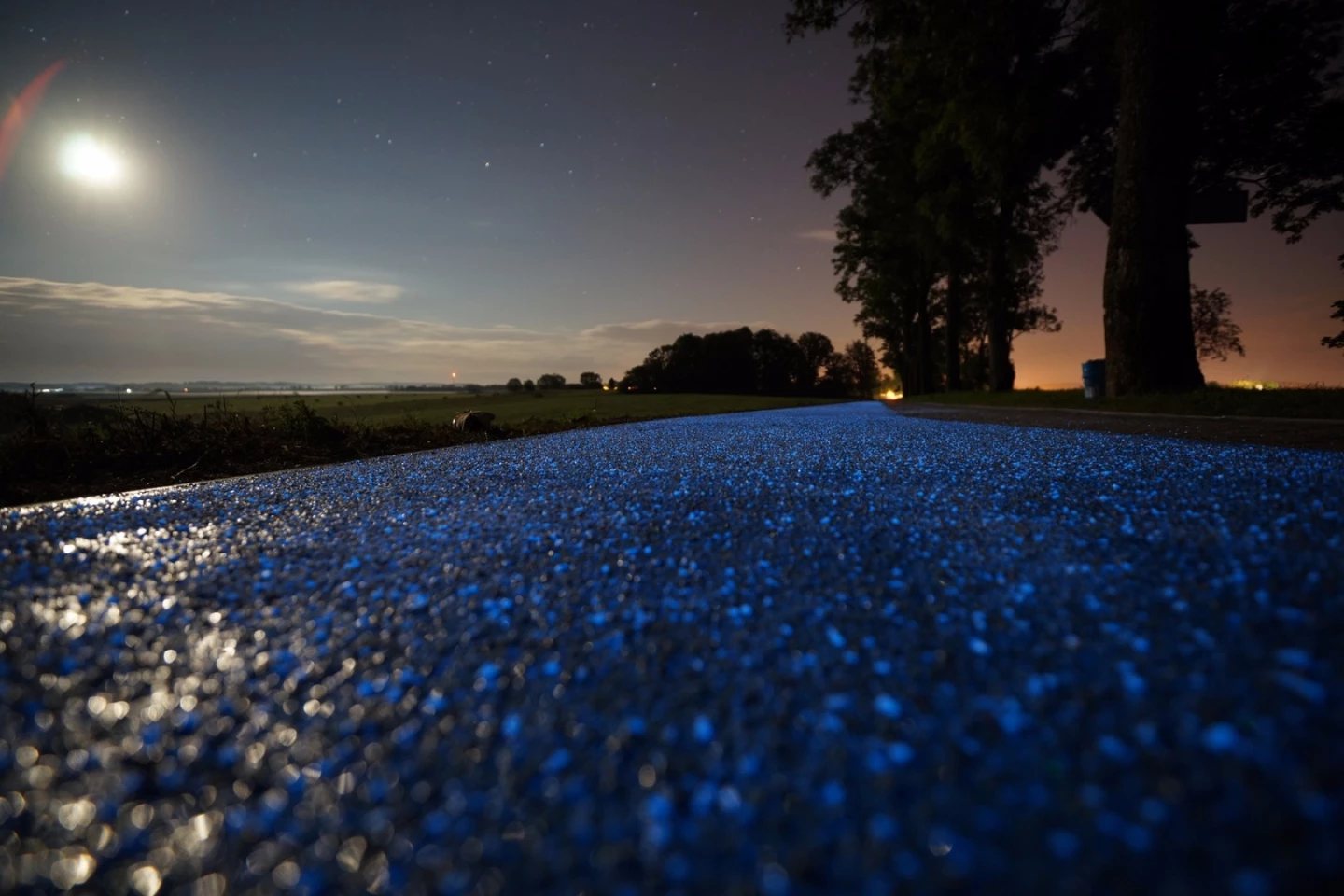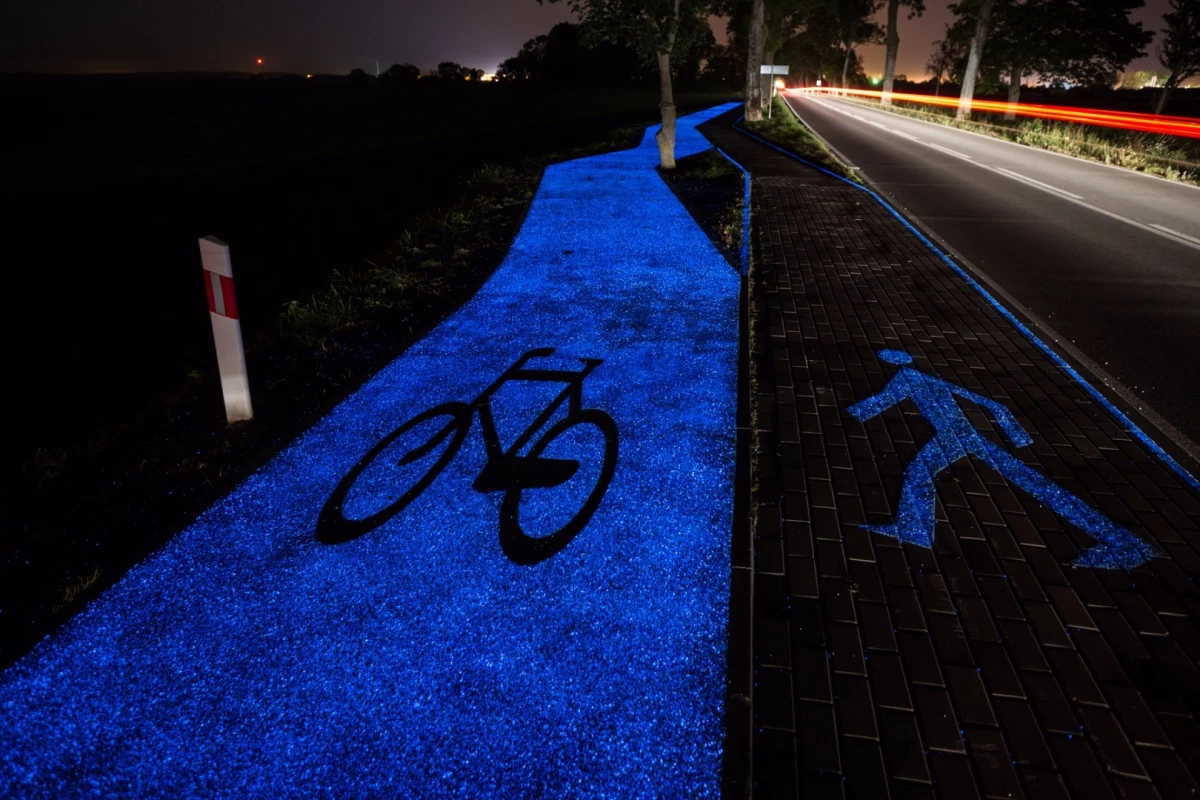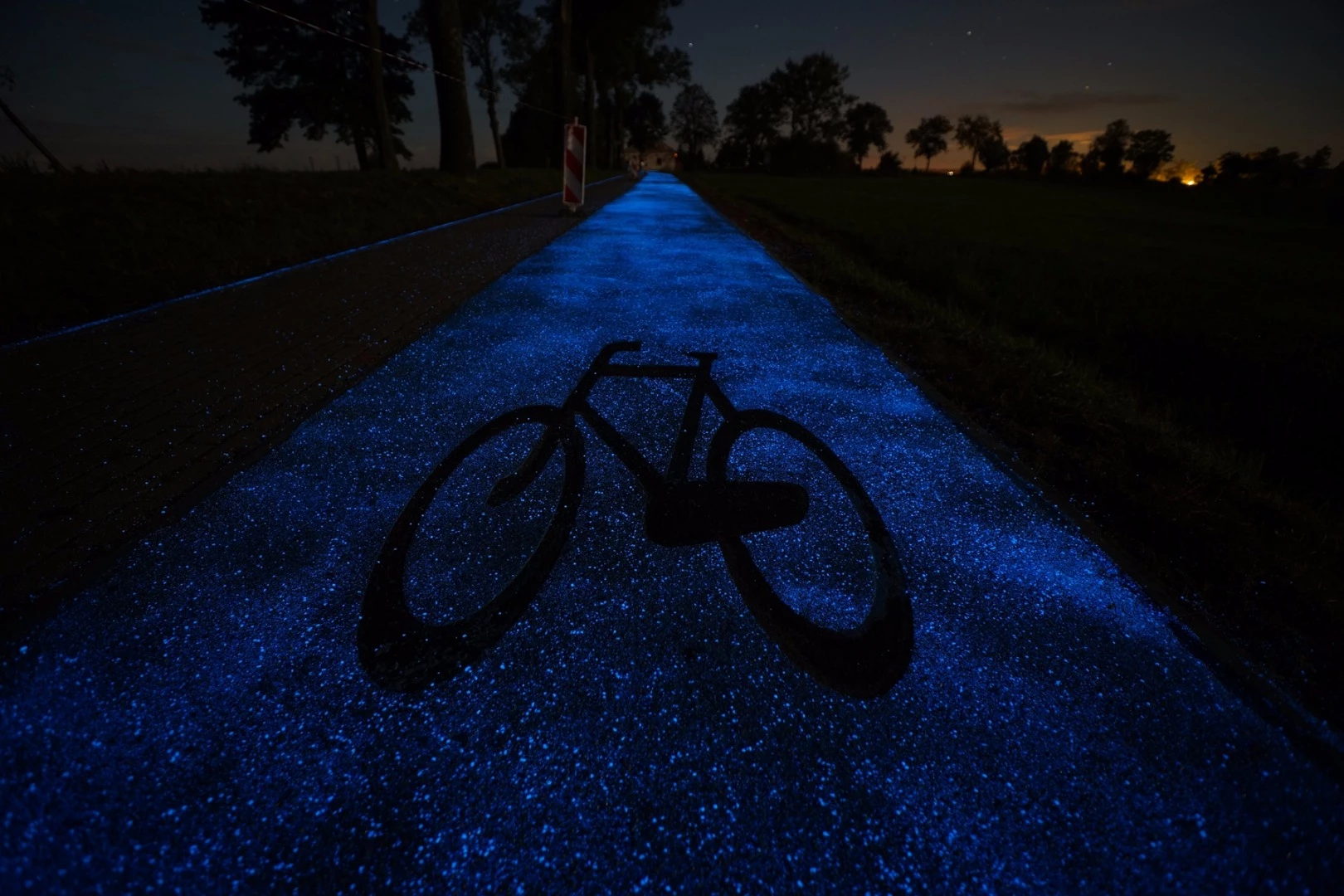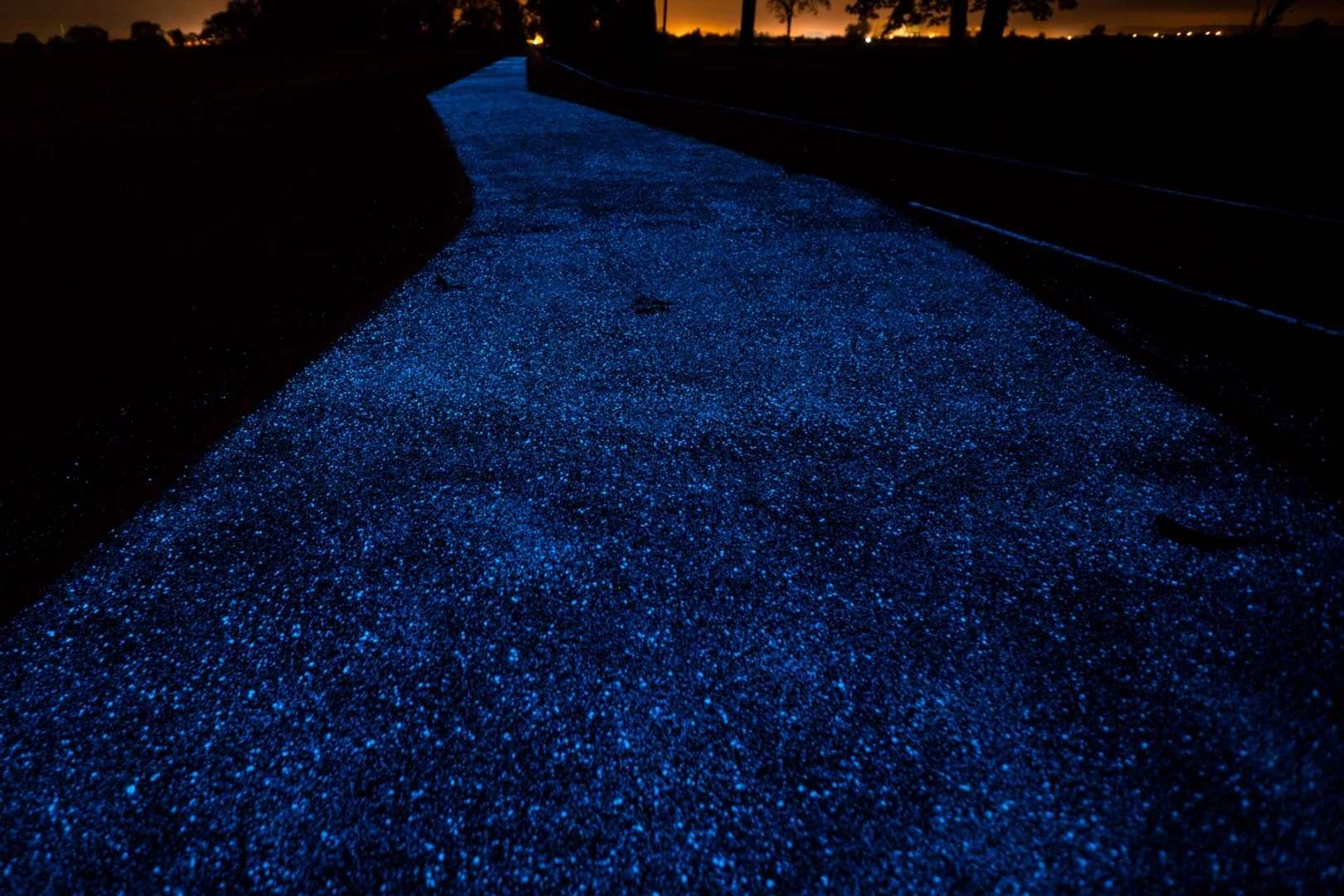Two years ago, Studio Roosegaarde created a glow-in-the-dark bike path in Eindhoven, Netherlands, helping to light the route in a exciting way. Inspired by that, a materials technology center in Lidzbark Warminski, Poland, has followed suit, with equally dazzling results.
The materials tech center, TPA Gesellschaft für Qualitätssicherung und Innovation (TPAQI), tells New Atlas that it first drew attention to the Eindhoven bike path at a local road forum event. The underlying concept was floated as a potential option for creating something that would reflect the beauty of the surrounding landscape.
Work began about a year ago, with lab tests into how the glowing effect would be created. A variety of different materials and colors were tested, with the aim of creating something that would both look great and that would increase safety for cyclists and pedestrians.
Ultimately, a fine aggregate containing inorganic luminophores (light-emitting constituents) was chosen. The phosphorescent material is "charged" by sunlight and emits a blue luminescence, which becomes visible in the dark. A layer of this aggregate was applied to a trial 100-m (328-ft) section of an existing asphalt bike path and, for additional safety, this was covered with a layer of small stone grits.

TPAQI says exposure to 30-60 minutes of daylight is enough to make the path glow for at least eight hours overnight. It believes the material should retain its glowing properties for about 20 years. As part of the trial, the durability of the glow-in-the-dark section is being observed under real-world conditions.
The project was completed at the end of September.
Source: TPAQI







